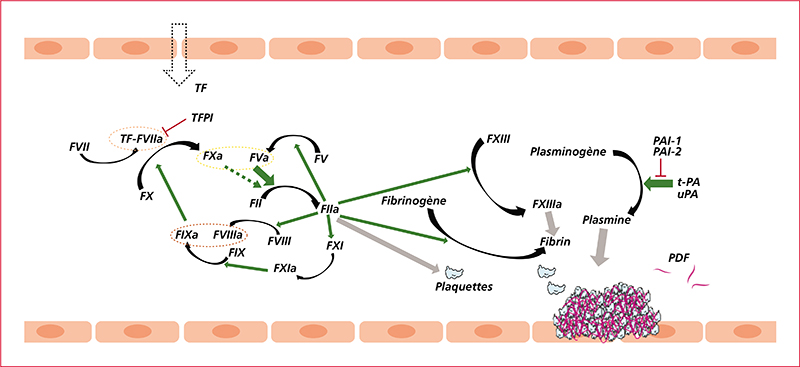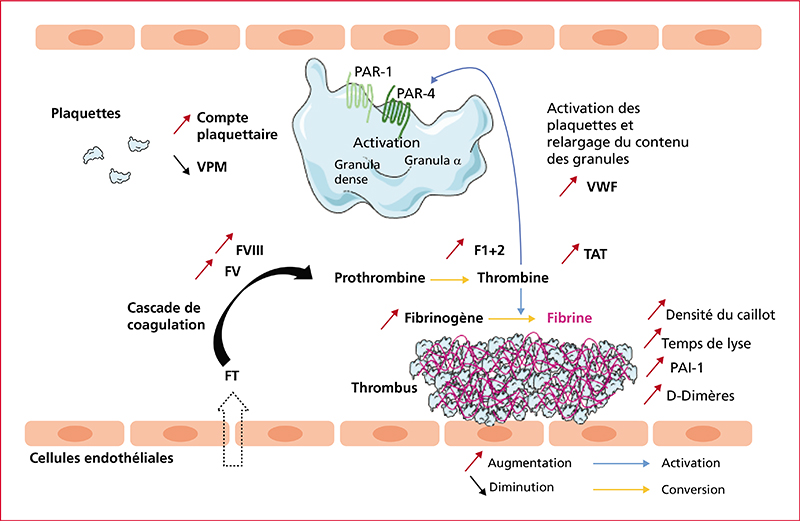Hépato-Gastro & Oncologie Digestive
MENUThrombotic molecular mechanisms in chronic inflammatory bowel diseases Volume 29, issue 9, November 2022
- Key words: inflammatory bowel disease, thrombosis, platelet, fibrinolysis
- DOI : 10.1684/hpg.2022.2464
- Page(s) : 1027-33
- Published in: 2022
The risk of thrombosis is increased in patients with inflammatory bowel disease (IBD). Several changes in blood cells and molecules involved in hemostasis have been described in IBD. For example, IBD patients have an increase in platelets and an increase in platelet-derived extracellular vesicles. Coagulation is generally activated as shown by in vivo markers of coagulation activation, and the anticoagulant function of endothelial cells is impaired. Finally, fibrinogen is increased and the fibrin clot is denser. However, even if the clinical picture suggests an imbalance towards a procoagulant state, the mechanisms of thrombosis associated with IBD are different from those of the general population. Patients with IBD have particularities with respect to the traditional parameters associated with an increased thrombotic risk. These explain why both preventive and curative treatments are far from unanimity among coagulation and IBD specialist’s opinion. The aim of this review is to synthesize the current knowledge on coagulation alterations on both the proand anti-coagulant sides associated with IBD.



